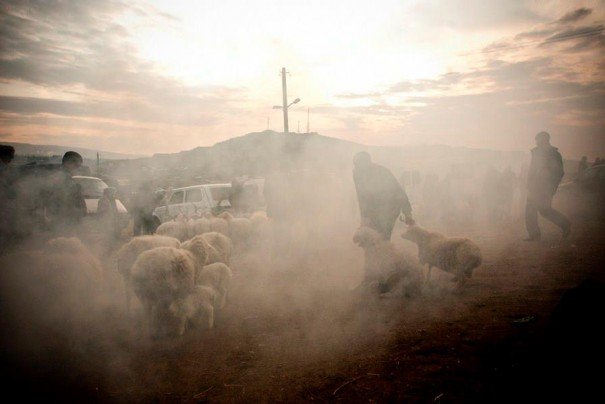
Georgia: Q&A with Natela Grigalashvili

A Q&A with photographer Natela Grigalashvili about her stunning new work, Georgian ABC.
The Georgians, while famously expansive as hosts, also have ancient customs that no man wants to cross. A wiry, smiling Georgian explained this on the first day of my first visit ever to the country years ago: “For example,” he said, “if you said something bad about my sister, I would have to kill you. Or at least try. I don’t know if I could kill you, but I would definitely try.”
And yet there is an unalloyed charm to these customs. Georgia, for all its faults and sorrows, has kept its culture alive, in part because of the vibrant and intact agrarian life that is the heart of Georgia. That’s why Europeans and Americans who visit Georgia often fall so deeply for the place: its rural traditions remind us of who we used to be.
Very few photographers out there tell the story of rural Georgia in as raw and intimate a way as Natela Grigalashvili. She is from the countryside herself, and after a pioneering start as the first female photojournalist in post-Soviet Georgia, she has turned her eye toward the villages. Her stunning new project is called Georgian ABC, and she is currently funding it on Kisskissbankbank, a European Kickstarter of sorts. Go pitch in your bit there. It’s a book that deserves to be published.
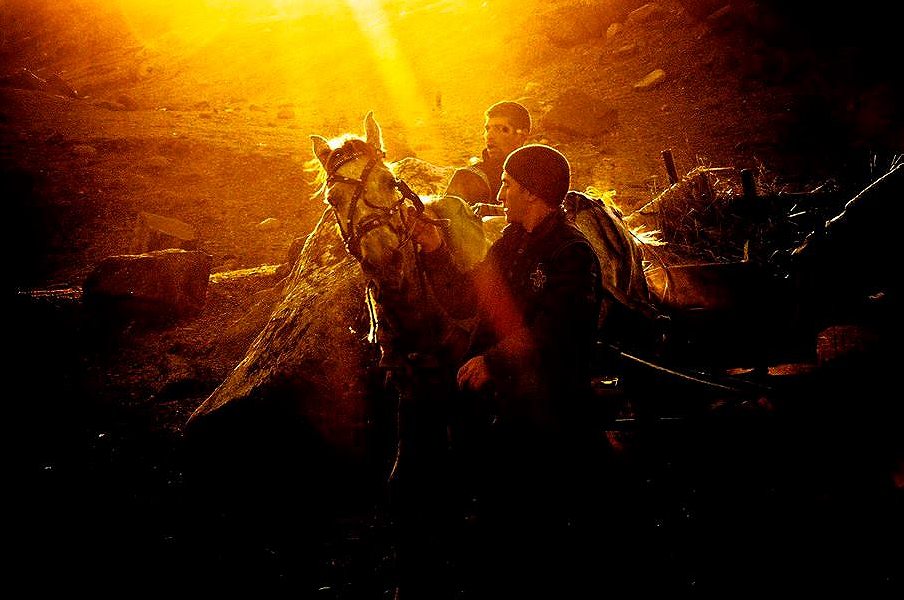
I was honored to have the chance to speak with Grigalashvili from Tbilisi on Skype recently. Here is our conversation, only lightly redacted:
Roads & Kingdoms: Tell me a bit about your background. How did you get into photography?
Natela Grigalashvili: I learned photography by myself, because there was no place to study photography and get the professional skills. I was born in the middle of the Kvartli region of Georgia. Then, I was hired as a photoreporter in various publications. For that time—this was in the mid-1990’s—women photoreporter was rare in Georgia.
R&K: Those were tough days in Georgia. So there were no resources for photography, no schools for it, and so on?
NG: Yes, it was so. No schools, no university faculty and so on.
R&K: Was it difficult being a woman in that profession back then? Did you get denied access to certain stories?
NG: I was first female photoreporter in Georgia. That caused excitement but didn’t make any problem. I think it was good… being a woman didn’t cause any problems.
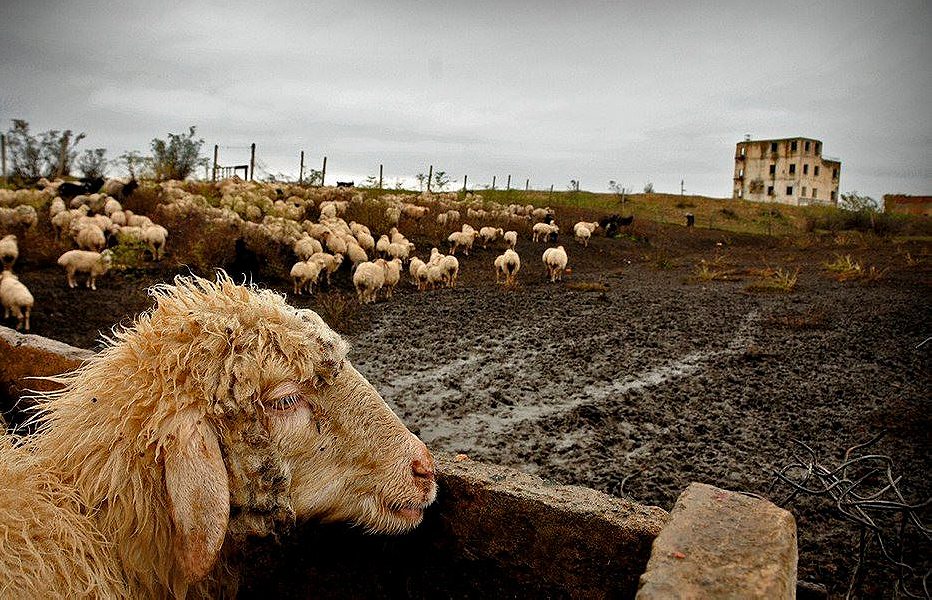
R&K: Already back in 2003 (and probably earlier) you were also doing things like “Georgian Village”, right? Not news photography, but something deeper.
NG: I have been working for that project for a long time, whenever I had free time a shoot photos.
R&K: The NY Times was talking about work from as far back as 1990 in your Chelsea exhibition…
NG: It lasted for years. When I realized what I wanted to say in photography I started to work on “Georgian village”. But those are just titles of my project, because there are various chapters, like celebrations, portraits and so on.
R&K: You have a similar project, called “My Village”: is it literally your village, the one in Kvartli?
NG: Yes, it’s where I was born and grew up: Tagueti, near a little city, Khashuri.
R&K: And the ABC Book as well is from all around the country?
NG: Yes, from all around the country. ABC book was made by traveling the Georgian villages, most of them were villages in high mountain regions.
R&K: So, this might be hard to say in a few words on Skype, but you mentioned “when I realized what I wanted to say in photography…” So what is it that you want these projects to say?
NG: Yes, it is hard [to summarize]. I think it comes down to my topic. I think villages have remained the history and original face of Georgia.
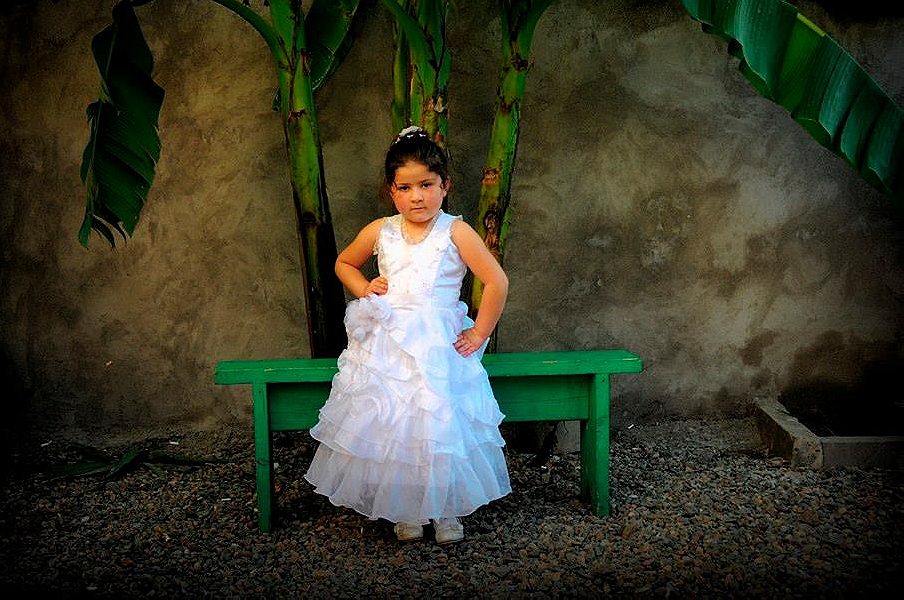
R&K: Since the time you started photographing rural life in Georgia, there has been a world of change in the country: Shevardnadze, war, Misha, Bidzina… do you see rural life change with all of this?
NG: All of that changed simply nothing in rural life… the only thing changed that my photos were black and white and now they are in color. The ABC book is my first project in color.
R&K: Was color film hard to get in the past? Or was it just a stylistic change?
NG: No, one day I wanted to see world in colors. But the topic of my projects stayed the same. It came from my inner world
R&K: Are young people staying in the villages these days? Do the villages have a future?
NG: No, too many people are leaving villages to start a new life in the city. In the village there is no chance to have a future. In Georgia there are some mountain region villages where only 2 or 3 people are left, only old ones. It’s really unfortunate; if nothing changes, those villages won’t exist any more.
R&K: What would have to change, though? It feels like this unavoidable march away from rural life, in Georgia and everywhere…
NG: I think people in village must be supported by government for people to have an ability to make life conditions.
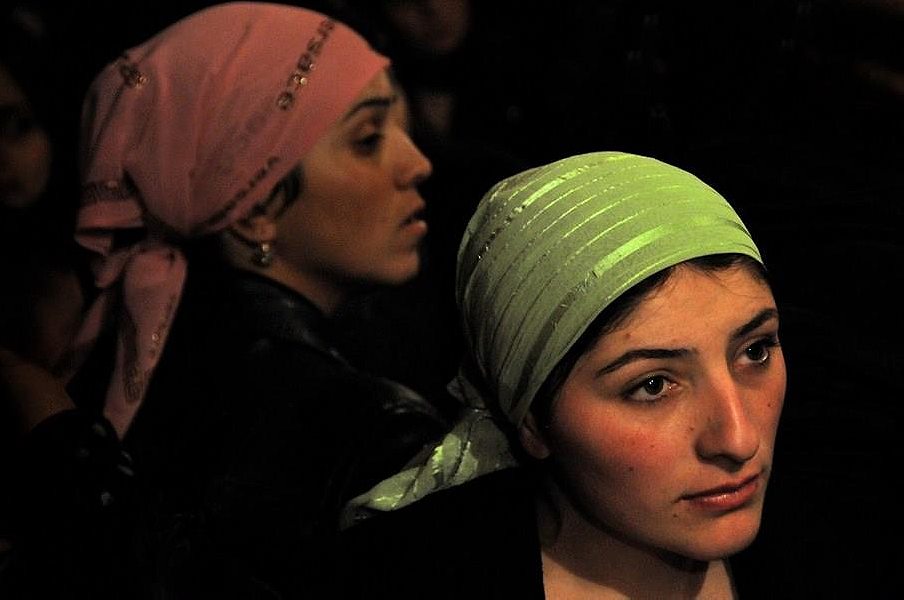
R&K: Do they have hope in the new government at all?
NG: Yes, they have a hope.
R&K: What about you? You live in the capital Tbilisi now. Would you go back to Tagueti to live?
NG: No, I wouldn’t… there’s no way to survive. But I visit that place often and if I had conditions there to work, I would stay with great pleasure.
R&K: Maybe I am biased, because of I love Nestan [Nijaradze, organizer of the Tbilisi Photo Festival], but seems like Georgia is becoming a really good place for photographers and photography. Justyna, Thomas, you, sometimes Kozyrev… So many amazing photographers from around the world have chosen Tbilisi.
NG: To my mind, Georgia is the very best place for photography. I’m fortunate that I was born here.
R&K: Tell me about the ABC Book project.
NG: I started to work on the project in 2011, I traveled various villages of Georgia. I decided the project should be structured like an alphabet book, where word and photo would be merged, but the photos aren’t literal illustration of words.
R&K: What is your method in these villages? How do you travel there? How long do you stay? Who do you connect with?
NG: Generally, when I have free time, I go to station, get a bus and go to my destination. I plan which village to visit: sometimes I search for acquaintances, sometimes I visit the places that I haven’t planned to go, just spontaneously.
R&K: How long do you stay? Does it take a long time to earn people’s trust?
NG: I stay for a few days, it depends how long it is from Tbilisi… the best way is to stay in the village for a long time. I have no problem to gain people’s trust. It’s easy for me.
R&K: Why?
NG: I know the “language” to talk with village people, or maybe I keep meeting very kind people.
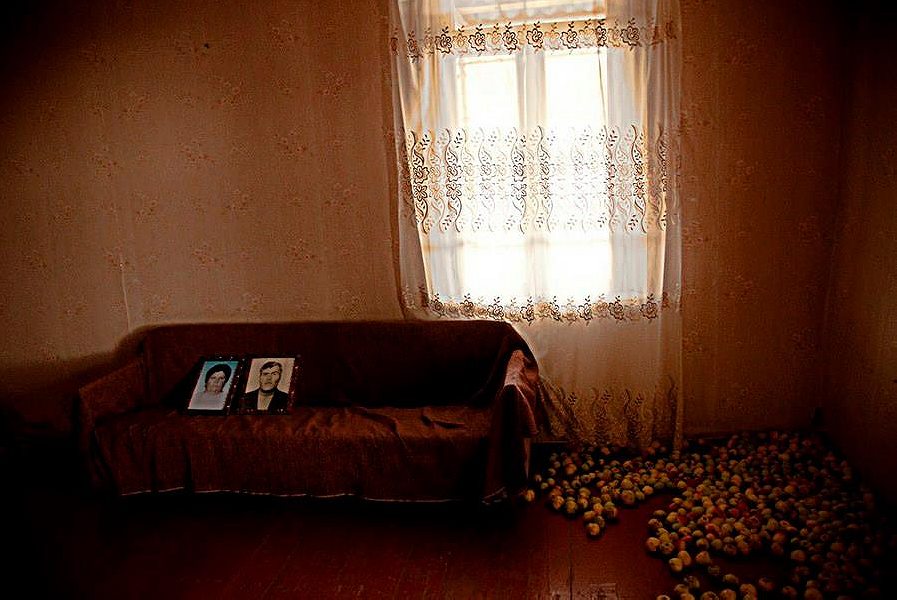
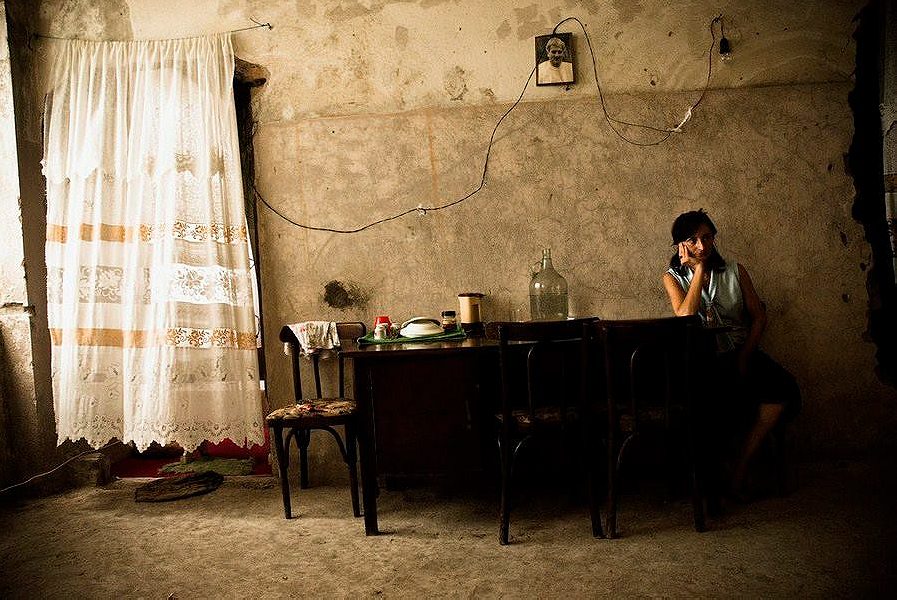
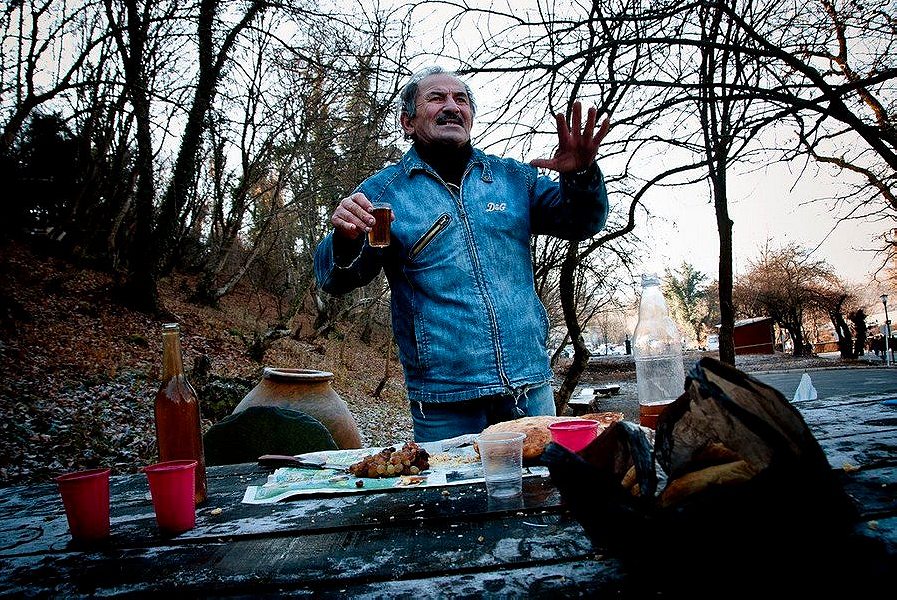
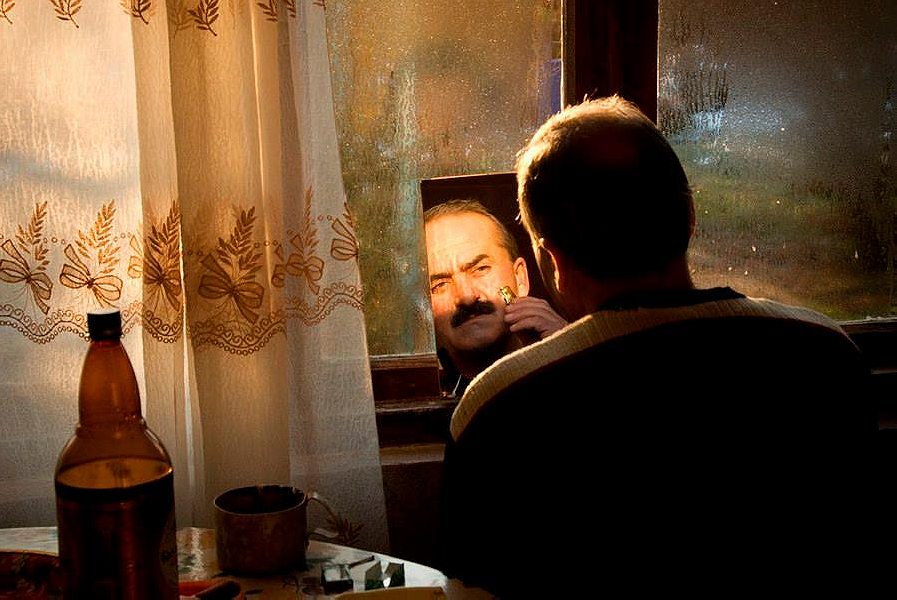
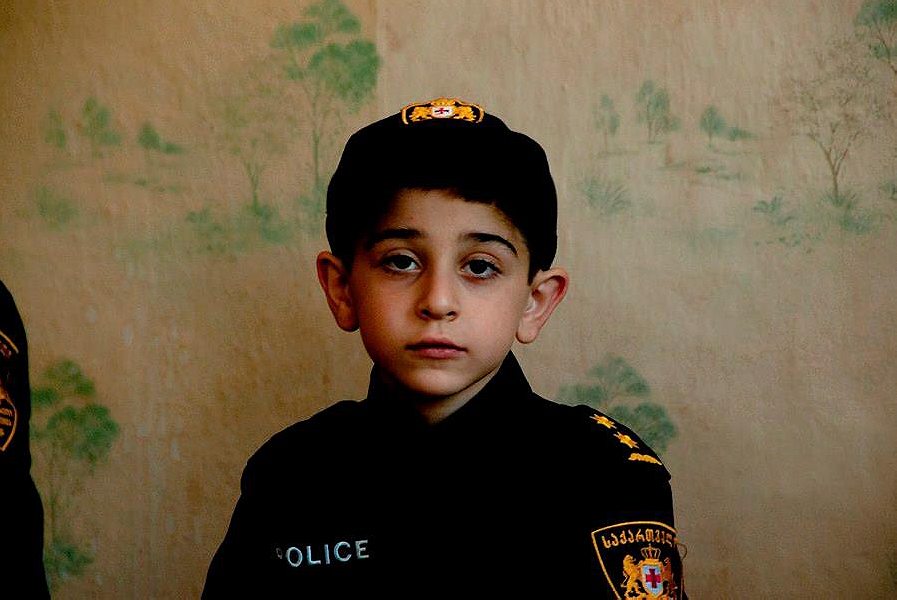
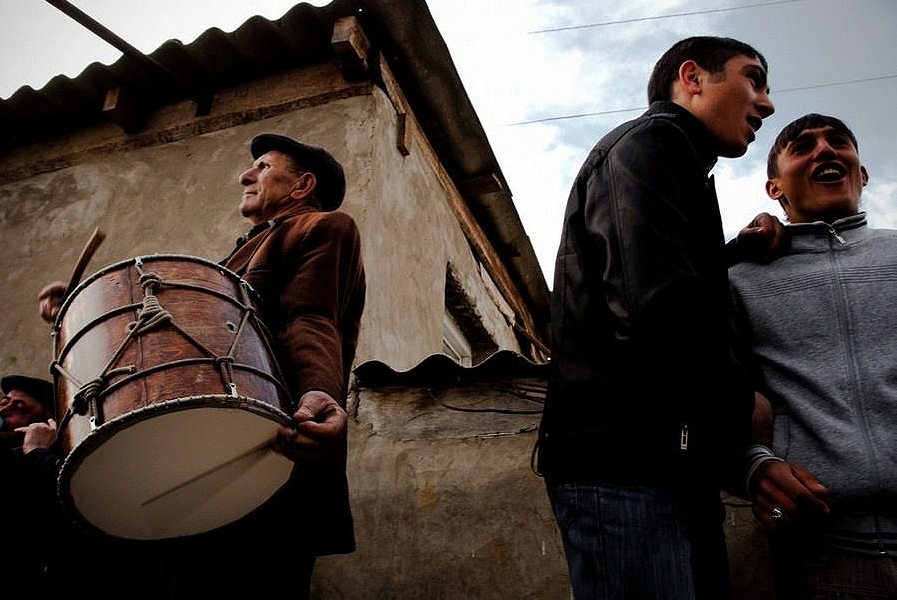
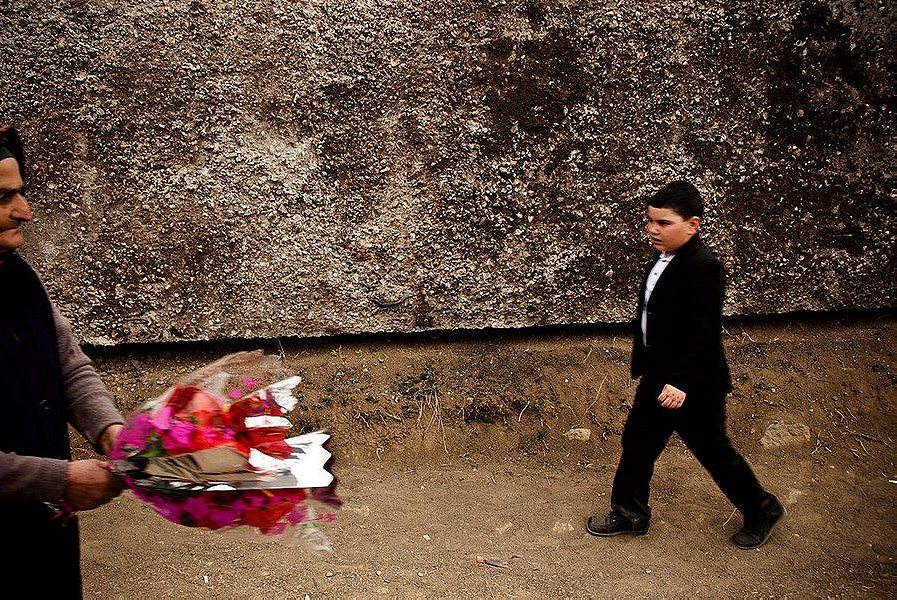
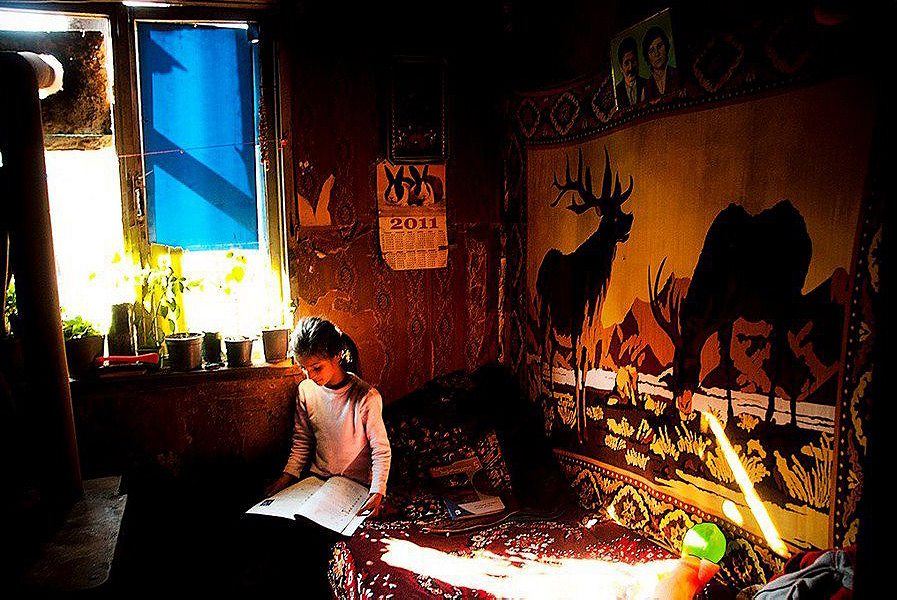
Small-group trips with R&K
Journey alongside chefs, raconteurs, and Roads & Kingdoms for the deepest culinary tours on earth.
